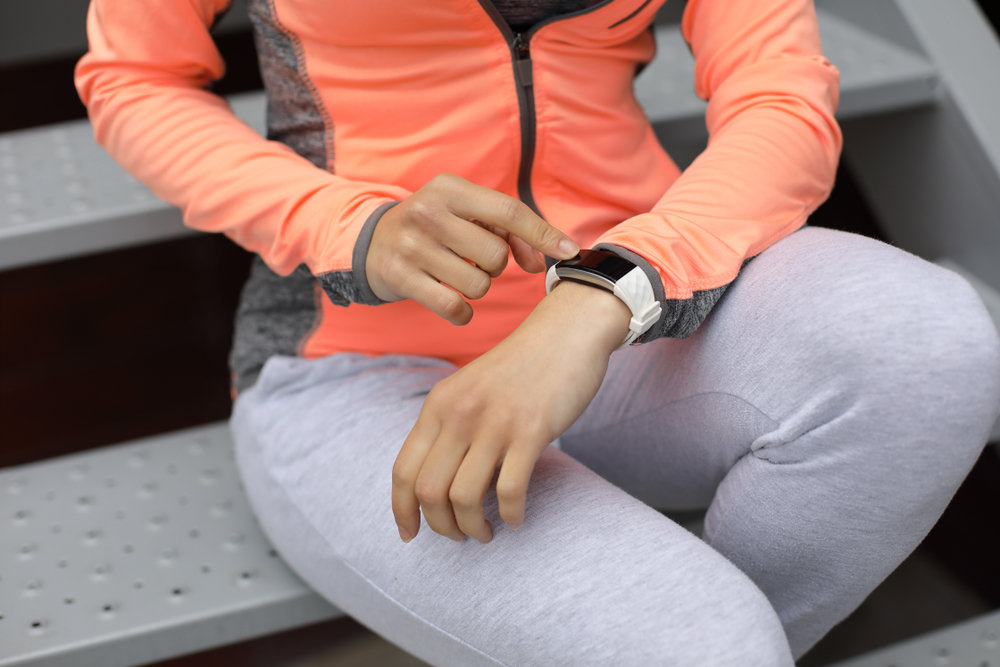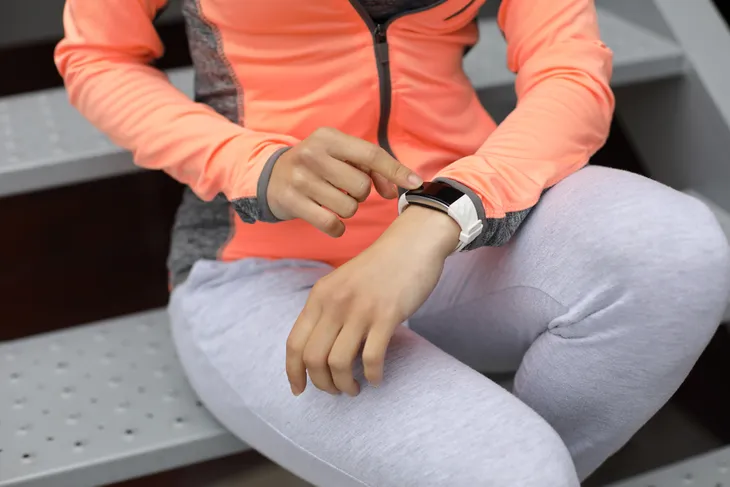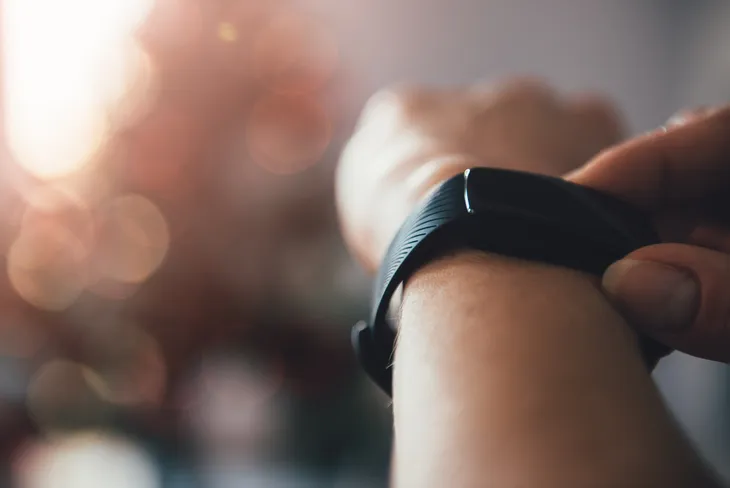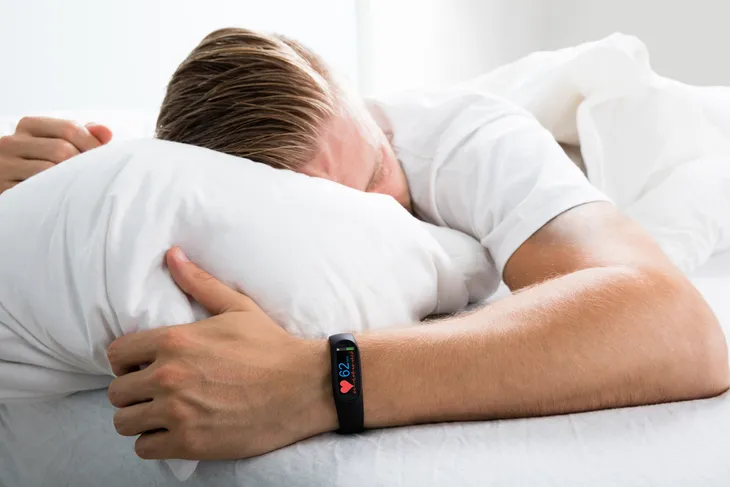One of the most popular additions to the average exercise regimen in recent years has been the fitness tracker. Although these devices have been available for some time, only in the last few years have they become more affordable—in some cases, around or even under $100. That has allowed more people than ever before to buy and use one.
The advantages of fitness trackers seem clear: they help you monitor the number of steps you take and, in some cases, can help track heartbeat, distance run, even the amount of quality sleep you get. But there are some significant drawbacks to wearing a fitness tracker and you should be aware of these issues…
1. They’re Not Always Accurate
For a long time fitness trackers were very expensive little devices, costing several hundred dollars. In an attempt to make these little machines more popular, electronics manufacturers have dropped the price to the circa $100 range. Unfortunately, this means some fitness trackers just aren’t all that reliable or effective.
What does this mean? Well, you may not be able to rely on the information fitness trackers tell you. It means you could be logging significantly more or less footsteps than the device says you have. You may be getting a lot more or less quality sleep than it says you have. And if that’s the case, then what, exactly, is the point of wearing one?
2. You Have to Wear Them all the Time
In order for a fitness tracker to be truly accurate—or are close to accurate as possible—you need to wear them all of the time. That means wearing them to work in the morning, for your evening workout, to the kids’ soccer practice, even when you crawl into bed at night.
So, ask yourself this: have you ever wanted to wear a watch that much? If you find it annoying to wear a device on your wrist literally around the clock, then think twice about investing in a fitness tracker.
3. They’re Not Always a Great Fashion Statement
Generally speaking, fitness trackers take on a fairly neutral and minimalist look. They tend to be slim, black, and generally inoffensive-looking. But they do look different—there’s no mistaking them when seen on the wrist of someone in the street, at school, or at work.
So, are they the most appropriate accessory for your suit in that really important meeting tomorrow? Will they match your red dress for the big gala this weekend? Will anyone take offence when you wear one to their wedding? Chances are, these situations won’t present problems for fitness wearers, but there’s no denying that they don’t always make the best fashion accessory.
4. They Provide a False Sense of Accomplishment
Fitness trackers are designed to show you how many steps you taken in a given day, week, month, etc. And that’s great—by doing so, they can encourage you to go for a walk or run when you might otherwise just stay at home on the couch all night.
But here’s the problem: they might also make you feel like you’ve done something remarkable, allowing you to feel more comfortable about indulging in food and drink that won’t help your diet—from high-fat, greasy fried foods to sugary alcoholic beverages. And that’s not even taking into account that some fitness trackers are more accurate than others.
5. Calorie Burn Count is Questionable
Many of today’s newest fitness trackers are actually capable of tracking the amount of calories you’ve burned in a day. And that’s great—by showing you how many calories you may have burned up, you can get a more accurate picture of how much food you should be eating in the day.
But the problem is that these calories burned counts are estimates, which means that, at best, they provide a fuzzy picture of how many calories you’ve actually burned off in a day. They can’t possibly take into account factors that affect each person uniquely, such as genetics, metabolism, etc. Keep this in mind when reading calories burned readings on your fitness tracker.
6. They Don’t Change the Basic Rule of Weight Loss
Sure, you can spend $100, $200, even $300 or more on a fitness tracker and it may help you track the calories you burn, the amount of steps you take, even the amount of decent sleep you get in a night. And in an ideal situation that can help you make changes to your diet and exercise routines in order to maximize the amount of weight you can lose in a given period.
But at the end of the day a fitness tracker can’t change one important fact: you need to be physically active and eat well in order to lose weight and maintain a healthy weight. A fitness tracker won’t change this standard, so if you’re not willing to play by the rules (which have not changed with the introduction of such tracking technology), then a fitness tracker may not be the best use of your money.
7. They Can Struggle to Track Sleep
Sleep is one of the great mysteries of our lives. Even today, in our world of remarkable health achievements and technologies, we know very little about why some people struggle to get as much sleep as others. At the same time, we know very little about what constitutes a good night’s sleep. All in all, that’s why there are literally hundreds, even thousands of products—from special masks to drinks to medications—that promise to help us get more sleep.
Fitness trackers won’t help you get to sleep, but some do promise to help track your sleep. They do this by tracking your heart rate, which tends to slow substantially once you descend into slumber. The problem: heart rate varies from person to person, and overall it really can’t be the way we judge a good night’s sleep. In the end, that means many fitness trackers could be raising alarms about your sleep when everything’s fine, or vice versa.










